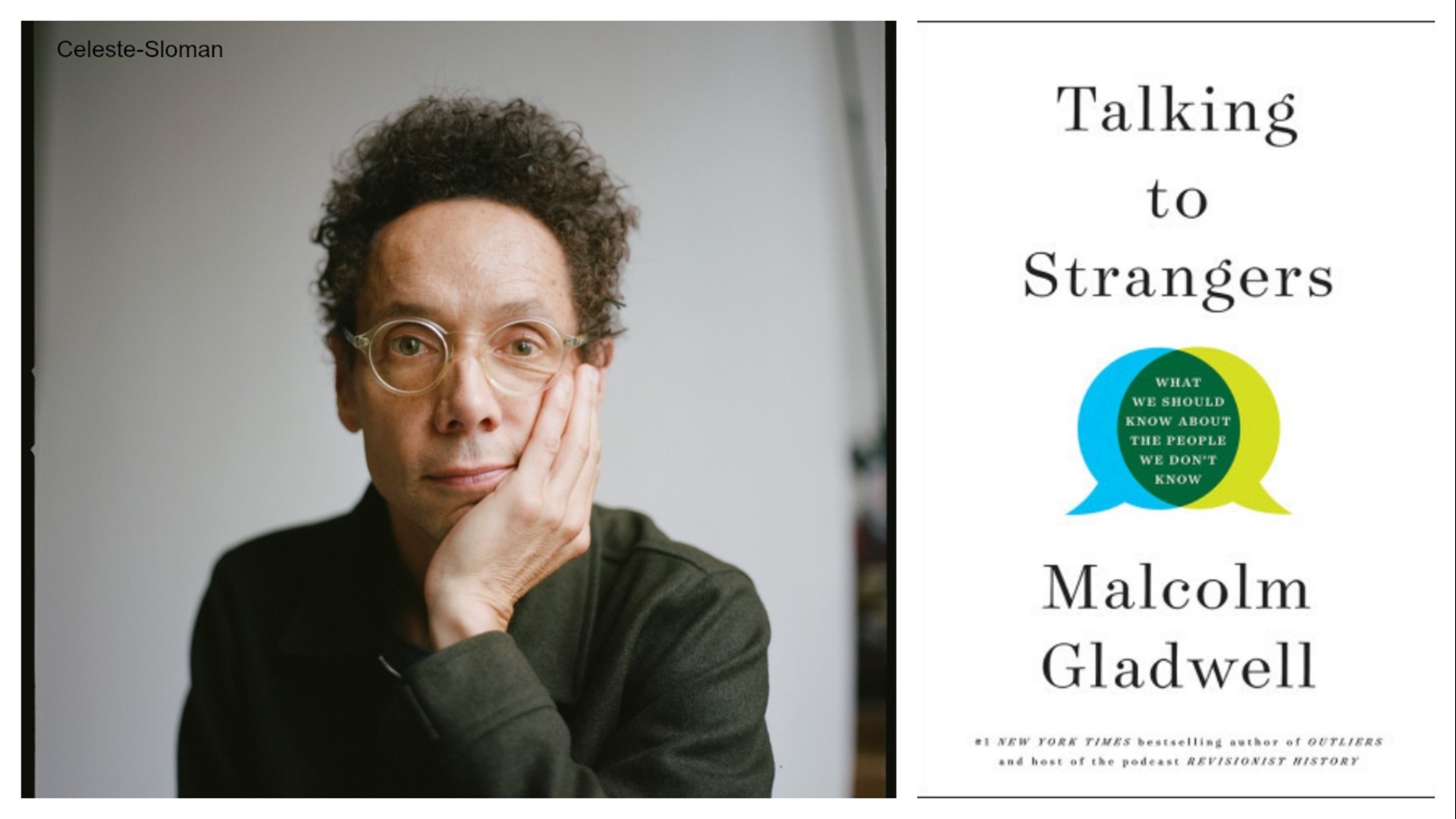The author of five New York Times bestsellers, Malcolm Gladwell's" Talking to Strangers" is based off the premise that because we don't know how to talk to strangers, we are causing -- even inviting -- misunderstandings. It is being hailed as his "darkest" book yet as he uses the trials of Amanda Knox, deceptions of Bernie Madoff and the death of Sandra Bland to demonstrate how small group conflict can have global impact.
Gladwell joins New Day Northwest to talk about the inspiration for the novel and explain why thoughtful communication is so important.
Using high profile cases, Gladwell explores the consequences that are a result of miscommunication and misunderstanding between strangers.
The book begins and ends with the case of Sandra Bland, a young African-American woman who was in Texas for a job interview and got pulled over by a white policeman for not signaling.
The conversation goes off the rails, Bland was arrested and three days later, she hanged herself in jail.
Gladwell didn't understand how such a catastrophic consequence could happen in a small, peaceful Texas town.
"It is an epic misunderstanding," he said. "The police officer gets her completely wrong on almost every level."
Gladwell also explores the difference between how people feel on the inside and how they express themselves on the outside through the Amanda Knox case.
"Reading someone's emotions is really really hard," said Gladwell.
It is common for us to put too much confidence in our own abilities to read someone else.
Sometimes we think all we have are those quick interactions or 30 minutes in a job interview to make a judgment, but there are other ways
"The key thing here is humility," said Gladwell..
Humility, restraint, care, and attention are antidotes to the idea that we can make an accurate judgment of character based on a few minutes of talking to a stranger when, in reality, no one has that superpower.
Misunderstandings play a big role in making judgments, but humans as a species can also be too trusting.
There is a phenomenon called the Truth Default Theory developed by Tim Levine who studied why we are bad at detecting liars.
Levine concluded that evolution simply did not prepare humans to have the ability to spot liars. Rather, it prepares us to do the opposite and rewards us for being trusting.
Trust allows us to have meaningful relationships, participate in communities, build organizations, and other things that have made human society what it is today.
Consequently, when someone deceives us, we're pretty helpless.
When told a lie, we are conditioned to give the person the benefit of the doubt and find it somehow plausible that they are telling the truth. Doubts have to accumulate quite a bit for us to begin thinking we are being deceived.
The last part of Gladwell's book touches on how law enforcement can take his research and this lesson to heart. He believes that police officers should not be put in a position in the first place where they are require to make a fundamental decision about someone in 30 seconds.
Understanding that human error is okay and natural can be the first step to solving miscommunications with strangers and can lead to better law enforcement and even every day interactions in the future.
Watch New Day Northwest 11 AM weekdays on KING 5, and streaming live on KING5.com. Connect with New Day via Facebook, Twitter, Instagram.

